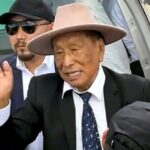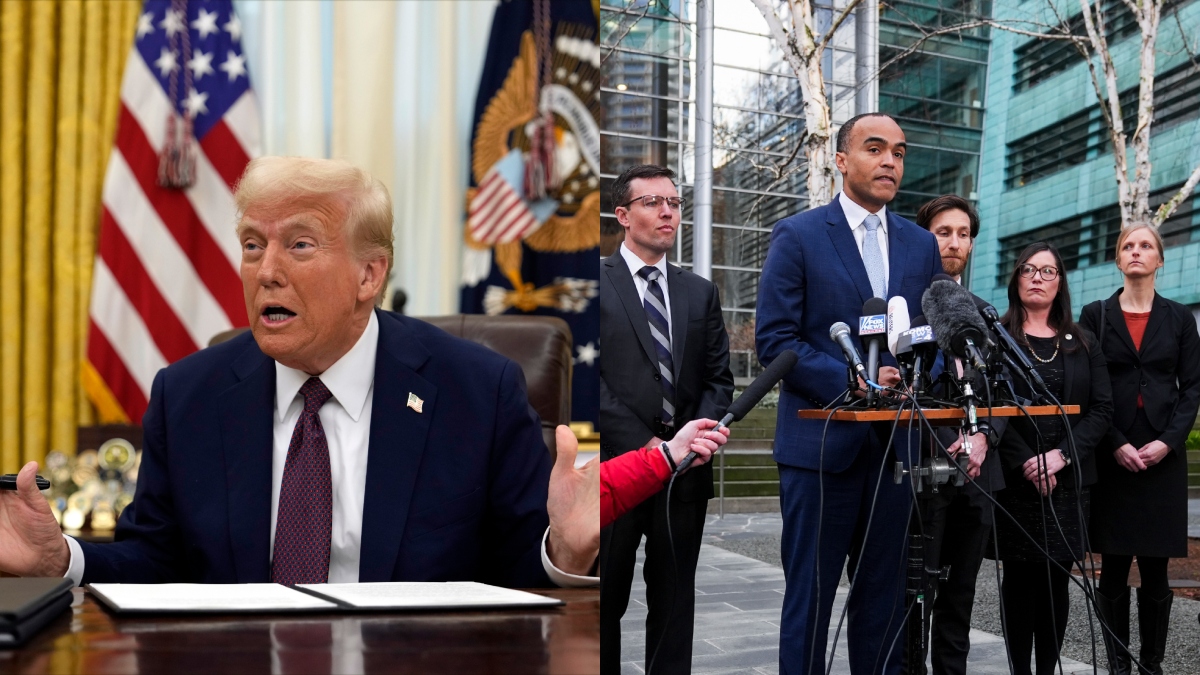President Donald Trump’s executive order to restrict birthright citizenship was temporarily blocked by a federal district court judge on Thursday, who deemed it “blatantly unconstitutional.”
At the request of four Democratic-led states—Washington, Arizona, Illinois, and Oregon—Senior U.S. District Judge John C. Coughenour issued a temporary restraining order, sparking a lengthy legal battle over Trump’s plan to deny citizenship to children born in the United States if neither their mother nor father is a U.S. citizen or lawful permanent resident. Democratic attorneys general and immigrant rights organizations challenged the directive in five lawsuits, including this one.
The judge heard 25 minutes of arguments before issuing the order, blocking the policy from taking effect for 14 days. “I’ve been on the bench for over four decades,” Coughenour, a Ronald Reagan appointee, said. “I can’t remember another case where the question presented is as clear as this one. This is a blatantly unconstitutional order.”
What the petitioners argued
Lawyers representing the four states that President Trump and the federal government now seek to impose a modern version of Dred Scott, referring to U.S. Supreme Court’s 1857 Dred Scott decision, which held that people descended from slaves were not citizens. However, the 14th Amendment emerged in the transformative post-Civil War era dismantled this exclusionary system, declaring that “all persons born or naturalised in the United States, and subject to the jurisdiction thereof, are citizens of the United States and of the state wherein they reside.
“But nothing in the Constitution grants the President, federal agencies, or anyone else authority to impose conditions on the grant of citizenship to individuals born in the United States,” they claimed.
The attorneys went on to say that in the absence of a restraining order, infants born in the Plaintiff States will soon be without documentation, vulnerable to deportation or incarceration, and many may become stateless. “They will not be allowed to return to the United States or travel freely. As kids get older, they will no longer be able to legally work and get a Social Security number. They will not be allowed to run for office, serve on juries, or cast ballots.
As members of a new underclass in the United States that the president has created, they will also be put in unstable and insecure situations,” the attorneys stated.
Additionally, they contended that the plaintiff states will lose federal funding for Medicaid and the Children’s Health Insurance Program as a result of Trump’s decision. Additionally, they would be responsible for adapting how they administer those programs to take the change into consideration.
The Justice Department’s argument
The birthright citizenship order is a “integral part” of Trump’s efforts to fix the nation’s flawed immigration system, the Justice Department attorneys told Coughenour.
They maintained that the states lacked standing to suit on the grounds of their purported economic harms and contended that Trump had the right to issue the order. “A third party, including a state, has no legally cognizable interest in the recognition of citizenship by the federal government of a particular individual — let alone economic benefits or burdens that are wholly collateral to citizenship status,” Brad Rosenberg, a litigator for the Justice Department, wrote.
Rosenberg focused on the technical provision that states cannot sue, but he also based his arguments on the fact that the courts had been misinterpreting the 14th Amendment for over a century.
“Ample historical evidence shows that the children of non-resident aliens are subject to foreign powers — and, thus, are not subject to the jurisdiction of the United States and are not constitutionally entitled to birthright citizenship,” Rosenberg stated.




































